The Annual LCC Programme is focused on reactor coolant, secondary chemistry and RCS material issues and open to nuclear utilities, manufacturers and vendors, research and engineering organisations as well as regulatory agencies. This Programme was started in 2004 and has gained large interest.
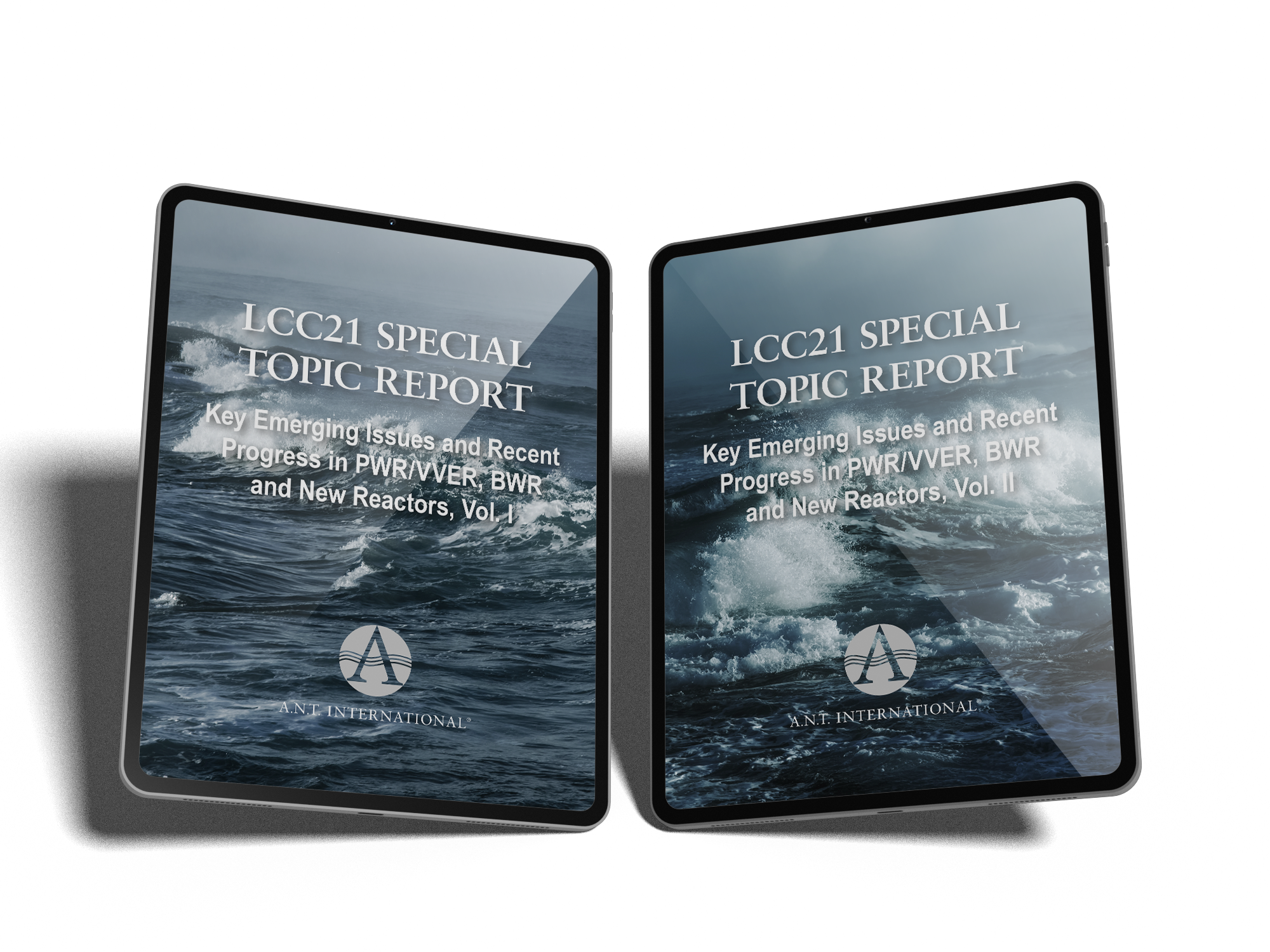
Objectives of the LCC Programme:
1
Increase understanding of reactor water chemistry related to a successful plant operation and continued integrity of Reactor Coolant System (RCS) materials while keeping radiation exposure low.
2
Guide the plant operators to apply adequate PWR secondary side chemistry for safe, economical and environmentally friendly plant operation with high availability and without significant steam generator degradation or fouling problems or carbon steel Flow Accelerated Corrosion.
3
Improve plant operation and chemistry control and monitoring.
4
Assist in the training and education of a new generation of chemistry and materials experts.
5
Establish an independent meeting point for experts to enable free and critical discussions and experience exchange.
CUSTOMER FEEDBACK
MICHAEL BOLZ
HEAD OF CHEMISTRY DEPARTMENT AT NPP PHILIPPSBURG, GERMANY
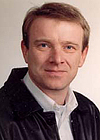
“In 1994 I started my career, as a research chemist, in the radiochemical laboratory of the NPP Philippsburg, Germany. I moved on to several different positions within the chemistry department and now I am head of this department. As such, I need to know the requirements of chemistry surveillance from the bottom and up. My practical experience, together with my educational background, has made me well prepared for this position. However I was not present when the plant was commissioned and I did not gather the valuable experience of elderly colleagues, who were present at a time when deviations from normal operation required unusual measures. As a chemist of the second nuclear generation in Germany I therefore feel confident to be a member of the LWR Coolant Chemistry, LCC Programme. The long experience of the LCC Expert Team provides useful information for “sunny and cloudy days” of a chemist job! The LCC Annual Report provide a quick overview of the latest developments in the nuclear water chemistry world. The LCC Special Topic Report collect, analyse and summarise issues and facts in depth that are essential for an understanding of the development and state of the art of nuclear chemistry. I am looking forward to be present at the next LCC Meeting!”
MALCOLM GRIFFITHS
PHD IN PHYSICAL METALLURGY. MANAGER FOR THE RADIATION DAMAGE AND DEFORMATION PROGRAM AND THE DEFORMATION TECHNOLOGY BRANCH AT AECL CHALK RIVER, CANADA
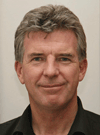
“ATOMIC ENERGY of Canada Limited utilises the ZIRAT and LCC Programmes for the training of new engineers and scientists working on materials performance in nuclear reactors. Apart from learning about generic materials issues pertinent to all nuclear reactor applications AECL’s young scientists and engineers are able to broaden their knowledge of materials performance in other nuclear reactor systems that are different from the CANDU reactors designed and built by AECL. The ZIRAT and LCC Annual Reports provide excellent reference material for our new scientists and engineers and are a valuable resource for scientists like myself who wish to stay current with advances in nuclear materials R&D. The special topic reports that are selected in advance by the Members, are an excellent source of references for those wishing to learn more about particular areas of interest and also provide valuable insights into the underlying subject matter. One recent Special Topic Report in ZIRAT14 summarised published information on in-reactor creep. This very extensive review of the in-reactor creep of zirconium alloys, extending over many decades of published data, is an excellent primer for researchers entering the field. The text and figures are formatted in such a way as to allow a reader to flip through the report and quickly understand the main points of the narrative. The colourful figures and tables are easy to view and add much to the character of the report. I fully expect that AECL will continue to use the forums provided by ZIRAT and LCC to train new staff and as a means of networking with experts in the field of reactor materials engineering.”
MS. JAYASHRI N. IYER
PRINCIPAL ENGINEER MATERIALS AND FUEL ROD DESIGN AT WESTINGHOUSE ELECTRIC COMPANY, USA
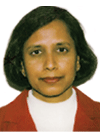
“I started my career at the Commercial Nuclear Fuel Division of Westinghouse Electric Corporation in 1984 as a materials design engineer. During my tenure at Westinghouse, I have worked extensively in the areas of materials development, application and performance evaluation in pressurised water reactors (PWR). My dual educational background in material science and engineering and in chemistry prepared me well for my career. During the past six or seven years I have seen rapid changes to reactor coolant chemistry with zinc injection and elevated lithium operation and have studied the impact of these changes on fuel performance. I have also seen experiences in PWR used to improve fuel performance in boiling water reactors (BWR) and vice versa. For example ultrasonic fuel cleaning was first developed and qualified for PWR application and later on was qualified for BWR application. The BWR experience with the role of sulfates in intergranular stress corrosion cracking of stainless steel components has been used to set limits for sulfates in the PWR spent fuel pool. Thus, it is useful to find in one place both chemistry and materials performance related-experience for PWR, BWR and VVERs. For new engineers and chemists, this could be a very useful training tool. For experts in a given field, knowledge of experience in other related fields facilitates improvements in their own fields. ANT International plays an important role in fulfilling this need in the nuclear industry through the LWR Chemistry and Component integrity, LCC programme.”
BERNT BENGTSSON
SENIOR ENGINEER & CHEMISTRY ADVISOR AT RINGHALS NPP, VATTENFALL AB, SWEDEN
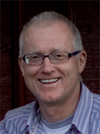
“I’ve been with Vattenfall for over 30 years were I worked both as technician, supervisor and chemistry manager at the Ringhals site before becoming a senior chemistry specialist and advisor about 10 years ago. I came to Ringhals early in a period of pioneer spirit, which made it possible to make some career with hard work despite only having a technical senior high school as background. In my case, learning by doing together with a lot of reading has been a guiding-star in most cases. Ringhals is still the only site in Sweden with PWR:s and with exception of some work in foreign units during OSARTs- and Peer Reviews, I’ve been stuck to the site and the Swedish west-coast most of the time, a beautiful place from spring to autumn, but not very exiting during the windy and rainy winters. My main areas of expertise and interest are PWR primary water chemistry related to radiation built up and fuel performance. Ringhals units have shown low dose-rates and good fuel performance for several years, partly explained by carefully controlled primary water chemistry. Another area of interest for me has been water management with demonstration of new purification technologies and the site lately spent some efforts in developing some new water treatment systems showing good experiences. Since a few months, I belong to a small department for research and development (R&D) were I’m responsible for the Chemistry & Radiochemistry part. However, I will still be dealing with issues related to common chemistry problems and strategies for the site. I’ve known ANT International and some of the experts since a long time and do regularly join the LCC Seminars as well as some of the ZIRAT Seminars. I find those very useful, not only for the presentations but also to meet the speakers and other colleagues for some fruitful discussions. Both the annual reports and specific technical reports provide good overviews of many actual topics and I’m sure that the LCC Programme, which has been continuously expanded, will continue to draw more chemists to the programme. Together with the different handbooks, ANT International provides excellent material for education, this supports the very important transfer of knowledge in times when alternation of generation becomes a problem in many nuclear power plants.”
DEWEY ROCHESTER
CORPORATE CHEMISTRY MANAGER, DUKE ENERGY (RETIRED)
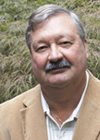
“Valuable for the training of personnel in the fields of chemistry and materials” When i began my career in 1974 at Duke Energy’s Oconee Nuclear Station, there were only a few operating commercial nuclear power plants in the U.S. and in Europe. As with any relatively new enterprise the communications systems among the utilities were not well established either in the U.S. units or with the European ones. At this time, the utilities relied on the large Nuclear Steam System Suppliers to provide them the information because there no other avenues for the exchange of operating experience. As a consequence, information was slow to arrive and incomplete in details since it was largely biased toward successes rather than failures. The situation now is much improved over the old days but, at least for U.S. utilities, European experience tends to be focused on specific subjects as opposed to general operating practices. Through both the ANT International LCC Seminars and the published LCC reports, there is a wealth of information available regarding European operating experience, in both the chemistry and materials areas. Also, contained in these reports and seminars is information that is valuable to anyone involved in the training of personnel in the fields of chemistry and materials. Chemistry and Materials personnel in the U.S. (and Europe) will benefit from these seminars and reports.”
JUAN DE DIOS SÁNCHEZ
AGING MANAGEMENT AT IBERDROLA, NUCLEAR SUPPORT DEPARTMENT, C.N. COFRENTES
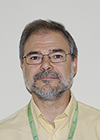
“My background is Chemical Engineering and almost all my professional career I have been linked to Cofrentes Nuclear plant. I participated in the plant’s startup tests, and joined the Chemistry group when the plant started its commercial operation. For more than 16 years I was responsible of Chemistry and Radiochemistry. In 2006 I moved to my present position in the Engineering Support Department. The Iberdrola’s relationship with ANT International goes a long way back. It started with our Fuel Department but quickly extended into areas of fuel failure, water chemistry interaction with fuel, chemistry and materials, control rods evaluation etc. by means of seminars, training courses or specific studies. We were always very satisfied with the results of these activities, as we found a perfect balance between the theoretical knowledge and explanation of the fundamental facts and their practical application. Therefore, when we were offered to participate in the LCC Programme we almost joined it without a doubt. The idea of gathering an important family of veteran experts to transmit their knowledge and experience in the areas where they developed the industry advances, and to provide a follow up of these matters, is simply splendid. After six LCC Programme Memberships we have a very positive balance of our participation. We appreciate very much the yearly updates from the international meetings on materials, corrosion and chemistry. It is a very practical way to be informed about new research and experiences of what has been published. But even more interesting are the Special Topic Reports that are published annually by the LCC experts on different topics. This part of the programme provides a thorough approach of the specific matters, from the theoretical basis, its historical development, the application of the results and the most recent approach and, for some technologies it provides an independent view of advantages and disadvantages. The text and the clear and smart graphics make these Special Topics Reports of special value for training new personnel in these times when the plants are incorporating young engineers.”

